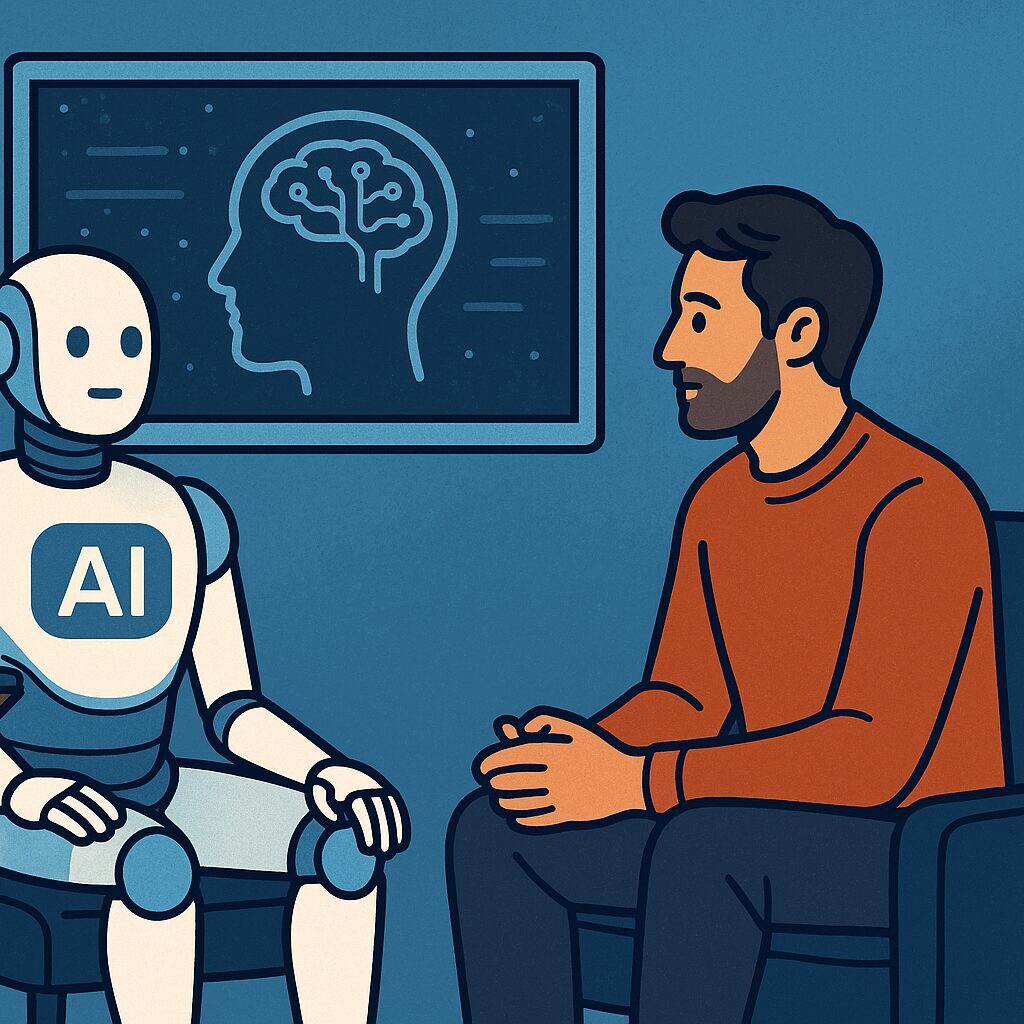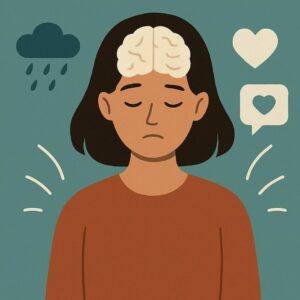The Ultimate Breakthrough in Therapy: 7 ways of Transforming AI
Artificial intelligence is changing psychotherapy in ways once thought impossible. In 2025, therapists and clients are increasingly using digital tools to make mental health care more accessible, personal, and effective. However, even as these technologies grow, the importance of genuine human connection remains central to healing. This post explores seven powerful ways that AI-driven innovations are reshaping therapy, alongside the timeless value of relational contact.
1. Chatbots Give Support Anytime You Need
AI chatbots like Woebot and Wysa are ready to help you 24/7. They use proven therapy methods like Cognitive Behavioral Therapy (CBT). Because of this, you can get help anytime—even at night or on weekends. You don’t need an appointment.
- Why it matters: Therapy is no longer only during office hours. So, many people feel less alone and more able to handle their feelings.
2. AI Tools That Track How You’re Doing
Some apps collect information about your mood and behavior every day. For example, MyOutcomes helps therapists see how you feel outside sessions. As a result, therapists can change your treatment faster.
- Why it matters: This helps therapists give you better care.
3. Teletherapy Brings Help to Your Home
Many people live far from therapists. Thanks to Artifical Inteligence and teletherapy, you can talk to a licensed therapist from your home. This helps more people get support, no matter where they live.
- Why it matters: Everyone should be able to get help.
4. Human Connection Than AI
Even with these tools, nothing beats real human connection. RP Psychotherapy focuses on trust and safety. This can happen face-to-face or in video calls. Technology helps, but the therapist’s care is what heals.
5. Supporting Therapist Training and Supervision
Artificial Intelligence tools analyze session recordings for tone, engagement, and technique, offering supervisors data to guide trainee therapists. By providing timely, specific feedback, these systems support skill development and higher standards of care.
Why this matters:
Ongoing training ensures clinicians stay effective and responsive to client needs.
6. Ethical Use of AI and Privacy Protections
Of course, therapy data is sensitive. Ethical digital platforms comply with regulations like HIPAA and GDPR, protecting client privacy. Clients also retain control over their data and consent to its use.
Why this matters:
Trust and safety remain essential as technology becomes more integrated into mental health care.
7. The Irreplaceable Role of Human Connection
Despite these impressive innovations, technology can never replace the deep human connection essential to healing. Relational approaches such as RP Psychotherapy focus on building trust and safety between therapist and client. Whether in person or through video calls, this bond is key to transformation. Therefore, digital tools should be seen as supports not substitutes for genuine empathy and presence.

🌟 Explore Deeper
Consider a FREE 15-minute consultation at RP Psychotherapy , whether in-person or online.
Embracing Innovation with Compassion
Artificial intelligence is revolutionizing therapy by increasing accessibility, personalization, and efficiency. Still, true healing depends on authentic human relationships.
The future of mental health care in 2025 and beyond lies in combining innovative technology with compassionate human presence. This balance will create more meaningful and effective therapy experiences for everyone.

